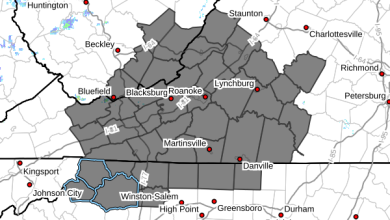Last Updated on February 12, 2022 6:43 pm
To facilitate the movement of resources needed to respond to Irma, Governor Cooper issued an emergency declaration for all 100 counties effective September 7. The executive order that waives truck weight, size and hours of service restrictions remains in effect to help storm relief vehicles traveling through North Carolina to Florida.
“North Carolina knows all too well the damage hurricanes can do,”; Gov. Cooper said. “Our thoughts remain with those cleaning up from Irma and Harvey, and with those families and communities in our own state still rebuilding from Hurricane Matthew.”
Executive Order No. 18, which declared an abnormal market disruption for gasoline in North Carolina based on the temporary shutdown of Texas and Louisiana fuel refineries due to Hurricane Harvey, remains in effect to protect against price gouging.
North Carolina is using expertise and resources put to work responding to Hurricane Matthew to help other states and territories with immediate needs following Hurricane Irma.
The state has been asked to send a portion of its mobile disaster hospital to Marathon Key, Florida for the next three months while the local hospital damaged during Hurricane Irma is rebuilt. The mobile hospital will provide a five-bed emergency department, a six-bed in-patient care area, x-ray capability and a laboratory. The portable hospital is the only asset of its kind in the nation and can provide a wide range of medical services after a major disaster. Following Hurricane Matthew, the same hospital set up in Kinston but it is not currently needed in North Carolina.
North Carolina has also sent a staff member to the national Emergency Management Assistance Compact coordination center to help manage the multitude of resource requests for Florida, Puerto Rico and the U.S. Virgin Islands.
A team of water system employees from North Carolina is currently down in the Florida Keys working to repair broken water lines. Last month, swift water and helo-aquatic rescue teams were sent to Texas to help rescue people left stranded after Hurricane Harvey.
“North Carolina is fortunate to have both the resources and experience needed to help others during disasters,” state Emergency Management Director Mike Sprayberry. “We’ll send whatever help we can while also ensuring that we have the resources needed to respond to any threats for our state.”
As the Atlantic Coast nears the peak of hurricane season, North Carolina emergency management officials continue to watch closely several tropical systems.
Hurricane Jose will pass more than 200 miles off the Outer Banks, but the storm will continue to cause gusty winds, high surf and dangerous rip currents along the entire North Carolina coast through Tuesday evening. Areas north of Cape Hatteras could see one to two feet of flooding. Meanwhile, Hurricane Maria is strengthening and expected to develop into a major hurricane later today. It is still too early to tell what, if any, impacts Maria may have on North Carolina. Tropical Depression Lee is not expected to affect the state at all.
“Early fall is the peak time for hurricanes so it is especially important to daily keep an eye on both the short and long-term weather forecast,” Sprayberry. “Harvey and Irma have been stark reminders of the destructive power such storms can yield. We want everyone to stay ready and stay informed.”
Visit ReadyNC.org and download the ReadyNC app on your smartphone to stay informed and to learn how to prepare for hurricanes and other emergencies.
Click here to read the executive order rescinding the State of Emergency.
















